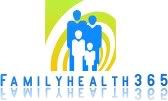
The first question many infertile couples ask when considering in vitro fertilization (IVF) is whether children born using the reproductive technology will be as healthy as those conceived the old-fashioned way. But the answer is a tricky one because there has been little definitive research to date on the potential long-term health risks of IVF.
The data is accumulating, however. Roughly 3.5 million children worldwide have been conceived by IVF over the past three decades, and many of them are now entering adulthood. With the growing population, researchers have begun pursuing larger studies on various aspects of development in IVF children — including the risks of conditions like autism, diabetes and cancer — and the results have hinted at some possible long-term health problems. (See pictures of a journey into the world of autism.)
The latest of these studies, published in the July issue of the medical journal Pediatrics, sought to evaluate the risk of cancer in childhood and early adulthood in IVF children. First, the bad news: the current study, the largest one of its kind so far, found a statistically significant increase in cancer risk in children conceived via IVF, compared with those who were traditionally conceived. Now the good news: the absolute risk of cancer in these children was still very low, and the authors think it may be due to other factors related to the parents' infertility, rather than the process of IVF itself.
The study of 2.4 million births, including 26,692 children born via IVF, between 1982 and 2005 found 56 cases of childhood and early adulthood cancers in IVF children, versus 38 cases that would be expected in other children of the same age-group. That's an increase in risk of 42%. While that figure sounds a little scary, lead author Dr. Bengt Kallen of the University of Lund in Sweden says the cancers his team studied, which included central-nervous-system tumors and a form of leukemia, are so rare to begin with that the excess risk translates to just one extra case of cancer per every 1,000 babies conceived by IVF. (Comment on this story.)
"There has been some uncertainty about this, and we just haven't had data good enough to show whether the risk is three or five times greater, as some people in the field believed. This paper shows us the risk in absolute terms is very small. That is the main message," says Kallen, adding that the findings persisted after controlling for age, weight and smoking status, among other characteristics, of the mother.
Why IVF babies may be at greater risk for cancer is not clear, but Kallen notes that these children are more likely than other babies to be born preterm and to suffer breathing problems that require oxygen therapy — factors that have been previously associated with an increased risk of cancer.
On the whole, IVF babies also tend to weigh less at birth than traditionally conceived babies — while low birth weight is not a risk factor for cancer, it is associated with other later health problems such as diabetes and obesity. Some researchers have also found epigenetic differences in the DNA of children conceived via IVF, compared with those conceived naturally, which may play a role in the long-term development of disease. (See how to prevent illness at any age.)
But the million-dollar question is whether any of the differences seen in IVF babies — from birth weight and preterm delivery to cancer risk — are the result of IVF treatment or the underlying infertility that caused mothers to pursue IVF in the first place. The new Swedish study cannot answer that question because it compared IVF children with those from the general population — that is, from families with no fertility problems.
According to Dr. William Gibbons, a professor at Baylor College of Medicine and the president of the American Society for Reproductive Medicine (ASRM), other studies conducted in Scandinavian countries have used different control groups and revealed interesting findings. Gibbons says that studies comparing IVF children with children of women who were infertile but conceived without IVF found no association between the fertility treatment and preterm birth, low birth weight or cancer risk. One Danish study published in 2007 in the journal Obstetrics and Gynecology reported no difference in babies' size for gestational age whether they were born to couples who used IVF to treat their infertility or those who did not. Another study from Norway, published in the Lancet in 2008, compared siblings conceived naturally and by IVF and also found no difference in babies' birth weight or size for gestational age. "There was no effect of IVF on these phenomena," says Gibbons.
University of North Carolina epidemiologist Andrew Olshan agrees that unknown factors relating to underlying infertility may well be contributing to many health conditions in children, but that it is very difficult to tease these factors out in a large enough study. Olshan says the Swedish study is a good one, but it is unlikely to be a game changer in the world of pediatric cancers. "We don't have a lot of leads as to what factors cause childhood cancers. IVF has been on the list of possible risk factors. It is still on the list, but I don't think this study moves it up the list. We'd need to see a collection of studies pointing in the same direction," he says.
Even if the study had confirmed IVF as a risk factor, experts say the level of increased risk is not enough to deter parents from undergoing the treatment. While IVF may bump up a tiny risk of childhood cancer, without it, many infertile couples may not have a baby at all.
time.com








0 comments
Post a Comment
[▼/▲] More Emoticons